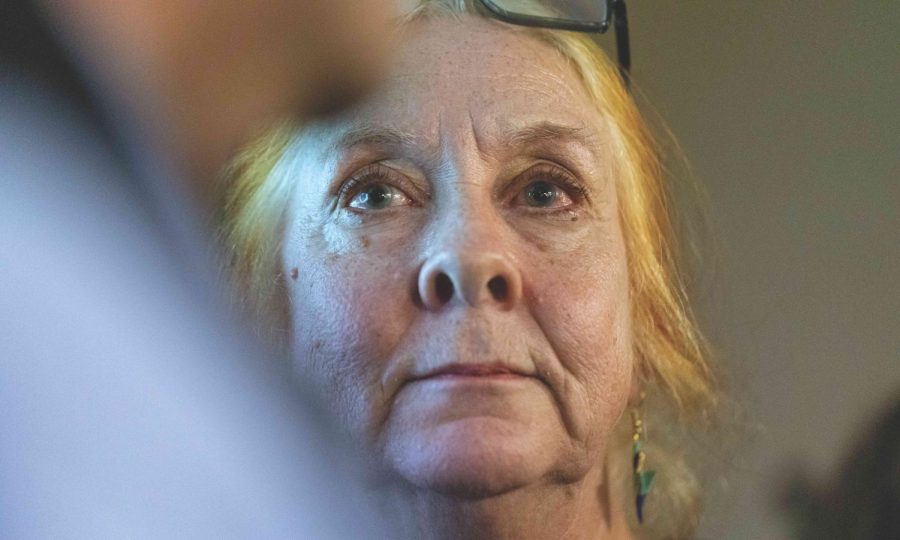OPINION: The suspension of the humanities shouldn’t come as a shock
This story originally appeared in the Herald’s news magazine edition, published on Nov. 28.
Western Kentucky University Folk Studies Professor Emeritus Erika Brady visits with attendees after a presentation in the Western Room of the Kentucky Museum on Thursday evening, Nov. 17, 2022 on campus in Bowling Green.
The question every student hears at family gatherings – “what are you going to do with that degree?” – now seems to be a justification for WKU to suspend programs it has deemed not profitable.
The university has created a habit of cutting or suspending programs and majors because their value wasn’t enough to justify their existence.
Some recent examples: The Arabic program? Suspended due to low enroll- ment and difficulty finding instructors. The French program? Suspended due to dropping enrollment. Diversity and community studies? Suspended due to low enrollment. The folk studies graduate program? Now pending suspension following a drop in instructors.
If your program can’t show its worth through dollar signs, your major might be next on the list.
Removing programs is the antithesis of progress. What is the purpose of a university if you take away opportunities to learn? In many ways it seems like WKU is becoming an expensive community college – a smaller student body with fewer academic paths.
The folk studies graduate program isn’t the first to face the chopping block. It won’t be the last.
The dismantling of prestige, unique and niche programs only hurts the university. Computing cost-benefit analysis on programs that have made and continue to make an impact on students’ lives outside of WKU is anti-progress. The intrinsic value of these degrees shouldn’t depend on their monetary values.
The outcry from alumni of the graduate folk studies program to the news that their alma mater might lose the program that made them who they are today should speak volumes to the importance of these programs.
If WKU spent more time investing in and promoting programs whose values aren’t immediately apparent, we may be able to save and further foster a better future for our students. What is the value of critical thinking? Of rhetoric and research? How can we judge these programs’ merit by their face value, if their merit is what they cost the university?
Students in these significant programs shouldn’t have to suffer the consequences of their department and university’s battles.
If enrollment is low, cutting programs won’t solve the problem. Why would students go to a less prestigious university that costs more, when community colleges can offer the same things?
WKU’s student body hasn’t been “20,000 strong” since Fall of 2017. As of Fall 2021, WKU has 16,750 total students enrolled. Our community is shrinking and our tuition fees are only increasing.
President Caboni – we urge you to consider the value of a college degree beyond the traditional tracks. Not everyone is working to become a physician or a lawyer, but that doesn’t mean they lack importance in society. Just because progress isn’t seen by the public, doesn’t mean it isn’t there.
How can you promote “the spirit makes the master” while dismantling the spirit of academic pursuit through program suspensions?
Folklorists, historians, linguists, museum curators, artists, philosophers and theologians make a concrete difference in the world – but WKU has lost sight of the cultivation of “life more life” when losing these programs.










